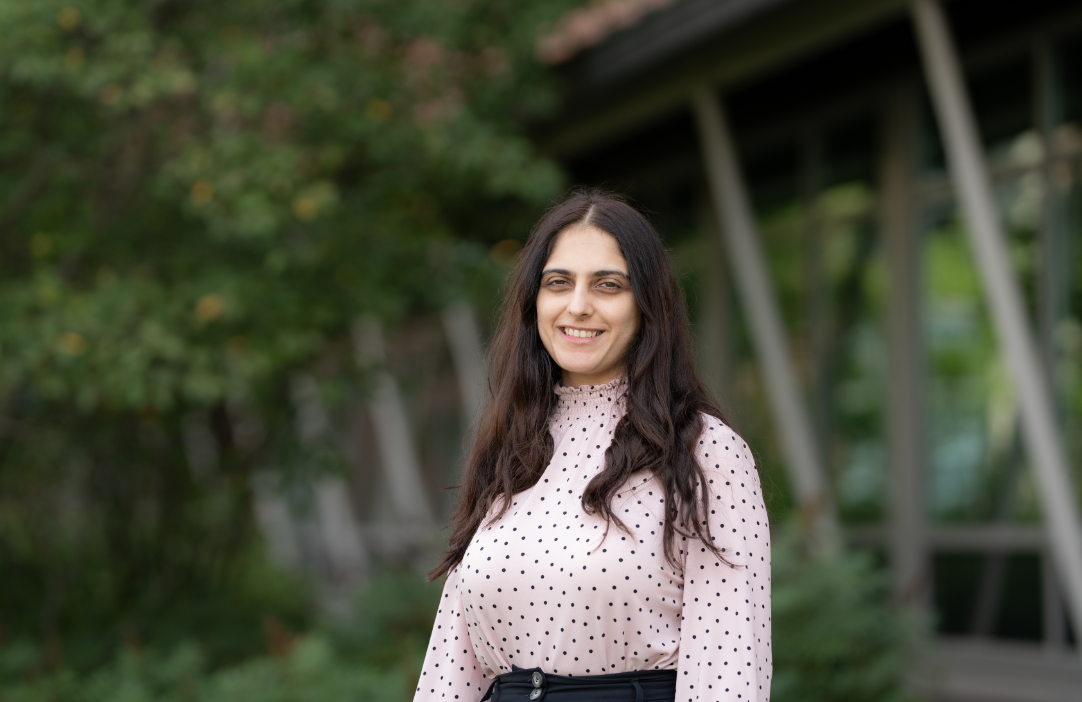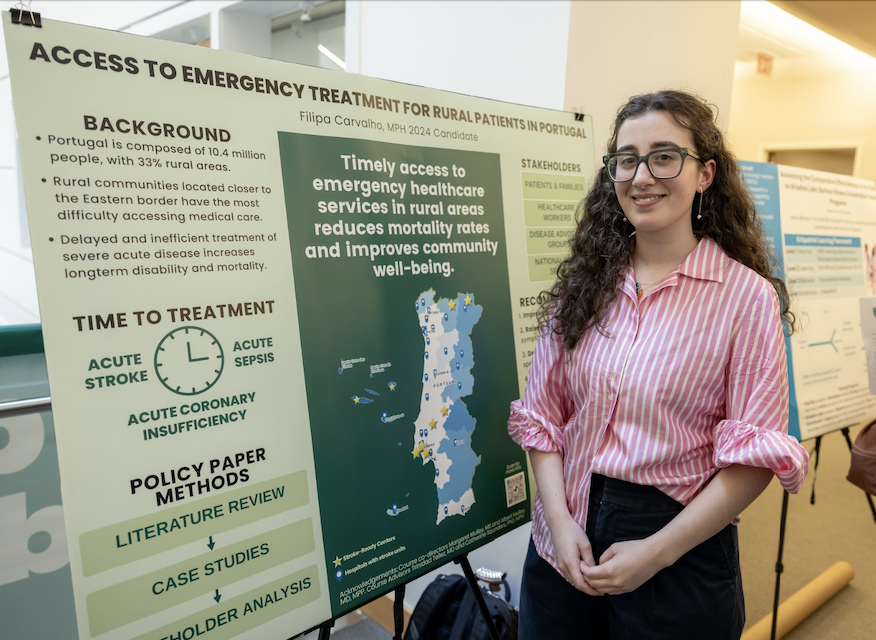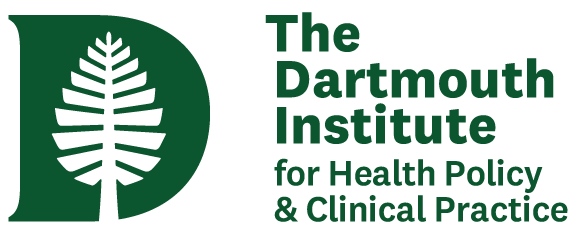2024 MPH Internship Stories
This trio of internship stories showcases the diverse and impactful experiences of public health students as they navigate the complex interplay of healthcare, law, and policy to address significant public health challenges. One student’s work at a medical-legal partnership highlighted the critical role of social determinants in patient outcomes and inspired a merger of interests in health, law, and policy to enhance access to quality healthcare. Another, leveraging their background in emergency medicine, investigated barriers to cervical cancer screening among primary care providers, seeking to implement effective quality improvement initiatives. Meanwhile, a third student focused on evaluating hospital financial assistance policies, aiming to promote health equity and protect patients from predatory billing practices. These narratives from the 2024 residential MPH students underscore the profound influence of public health internships in shaping future leaders equipped to tackle systemic issues in healthcare. Keep reading to learn more!
Medical Legal Partnership Project Impacting Civil Legal Needs of Families: Personal and Family Challenges
 Mei Maxwell, MPH'24
Mei Maxwell, MPH'24
Mei Maxwell spent the summer of 2019 working as an intern at a pediatric clinic in her rural, western New York hometown tucked between the eastern tip of Lake Erie and the Allegheny National Forest. “Clinicians provided the utmost quality of care for the patients,” recalls Maxwell. Yet disparities in patient outcomes were stark.
The discrepancy launched Maxwell on a quest to understand the underlying factors that affect health outcomes. She earned a bachelor’s degree in neuroscience with a minor in political science at the University at Buffalo Jacobs School of Medicine and Biomedical Sciences and interned for United States Senator and Majority Leader Chuck Schumer, New York’s senior senator. To integrate her interests in medicine, law, and policy, she enrolled in Dartmouth’s one-year Master of Public Health program.
This spring, as the capstone to her MPH, Maxwell dug deeper into how social determinants of health affect patient outcomes with an internship at Dartmouth Health’s Medical Legal Partnership (MLP). Through the hybrid position, she explored the MLPs at Moms in Recovery, an intensive outpatient program in Lebanon, NH, for pregnant and parenting adults seeking treatment for substance use disorders, and at TLC Family Resource Center in Claremont. Through her internship, Maxwell works with project managers, lawyers, and staff members to analyze data on patient population demographics and outcomes. “There’s a lot of patients and clients who are dealing with issues related to housing and benefits that they’re entitled to,” she says. “I’m looking at what civil legal services people have needed in the past and where the program can expand in the future.”
It's been exciting to see clinicians and staff working side-by-side with lawyers from New Hampshire Legal Assistance to advance patient health, says Maxwell, who credits the internship with giving her a clearer view of the housing challenges facing the Upper Valley region of New Hampshire and Vermont.
“I’m really interested in upstream drivers of health and how to make a difference in people’s lives,” says Maxwell, who plans to return to New York State to work before applying to law schools. “This internship has showed me that by combining my interests in health, law, and policy, I can make a meaningful difference in helping people to access the quality healthcare that they need.”
Understanding Variations in Cervical Cancer Screening completion rates among PCPs
Nawal Maklay, MD, MPH'24
 As an emergency department physician in Bahrain, Nawal Maklay, MD, accumulated a decade of first-hand observations regarding the health disparities and inequities that persist even in a country with universal health coverage. She became increasingly convinced that the next step in her work to support the well-being of her people was by earning a Master’s in Public Health at Dartmouth. “We don’t have a lot of research back home,” says Maklay. “I need to learn how to generate my own research to have an impact on clinical decisions and practice.”
As an emergency department physician in Bahrain, Nawal Maklay, MD, accumulated a decade of first-hand observations regarding the health disparities and inequities that persist even in a country with universal health coverage. She became increasingly convinced that the next step in her work to support the well-being of her people was by earning a Master’s in Public Health at Dartmouth. “We don’t have a lot of research back home,” says Maklay. “I need to learn how to generate my own research to have an impact on clinical decisions and practice.”
For her internship, Maklay chose a quality improvement project supervised by family physician Hyunouk Hong, DO, MPH, the physician quality lead at Dartmouth Hitchcock Manchester-Bedford Primary Care, and Joohahn Kim, MD, associate medical director for the practice. Their project focuses on elucidating barriers to cervical cancer screening among primary care providers in the Dartmouth Health system.
The incidence of cervical cancer has remained unchanged since 2000, according to data from the New Hampshire Department of Health. While early detection—at stage 1—has a survival rate of 91%, screening rates for Dartmouth Health Manchester currently hover at less than 70 percent of eligible patients ages 21–75. Maklay’s work lays the foundation for evidence-based interventions by clarifying the specific barriers local providers face. “We’re surveying providers to learn whether they know current guidelines, whether they have the right equipment, what other issues they address during appointments, and how they approach sexual health training.”
Maklay credits her experience during the internship for opening her eyes to the ways that clinical workflow affects the implementation of public health screening targets and quality improvement initiatives. “Something you don’t get in class is how the clinical workflow affects provider behavior,” she notes. “If you want to make changes, implement changes in the clinic, you need to understand that clinical decision-making context.”
Hospital Billing Project: Assessing Hospital Financial Assistance and Predatory Billing Practices
Filipa Carvalho, MPH'24
Filipa Carvalho applied to Dartmouth’s Master of Public Health program intent on challenging herself to explore the abstract, systemic challenges of healthcare access. With two years’ experience as a clinical research coordinator at Beth-Israel Deaconess Medical Center’s Division of Stroke and Cardiovascular Diseases, Carvalho had a solid foundation in the mechanics and processes of patient care. So, when it came time to select an internship, she opted for a placement with the Lown Institute, a nonpartisan think tank dedicated to health equity, social justice, and transformation. “I tried to explore facets of public health I hadn’t already explored through coursework,” says Carvalho. “This semester has been all health policy and health economics, all the time.”
Carvalho’s project investigated the laws and regulations that govern hospitals’ financial assistance policies, with a goal of developing a metric for ranking hospitals for their financial assistance programs. Ultimately, the project may contribute to financial policy reform and enhance patient payment protections. “There’s been this thread in my work of thinking about big, systematic issues and being able to see the impact on a human-by-human basis,” she says. “There are so many laws about what hospitals are supposed to do, how they’re supposed to protect patients, and ultimately, accountability is hard to do.”
For Carvalho, the internship experience has also clarified her own next steps. A career in policy and finance isn’t in her immediate future. Instead, she plans to keep exploring and challenging herself, possibly through work abroad to experience healthcare systems beyond those in the United States. “I’m excited to get out of my comfort zone,” she says, “and apply the MPH more broadly, learn about how I can be effective in lots of different ways.”
Stories written by Sharon Tregaskis
POSTED 5/30/2024 AT 04:18 PM IN #experiential learning #internship #public health #integrative learning experience
GET IN TOUCH
To arrange a media interview, please contact:
geisel.communications
@dartmouth.edu

